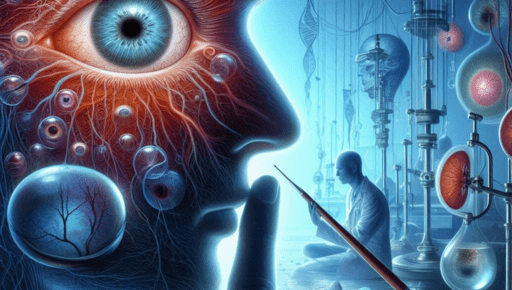
Thyroid Eye Disease (TED) can cause discomfort and vision problems. It’s a condition that affects the eyes, leading to symptoms like bulging, dryness, and irritation. You might even notice red eyes bay ridge mentioned in discussions about eye health. Ophthalmologists play a crucial role in managing TED. They assess the condition, recommend treatments, and provide ongoing care.
Understanding Thyroid Eye Disease
TED is an autoimmune disorder linked to thyroid dysfunction. It often occurs in individuals with hyperthyroidism, particularly those with Graves’ disease. The immune system mistakenly attacks the tissues around the eyes, causing swelling and inflammation.
Symptoms of TED
Recognizing TED early can prevent complications. Key symptoms include:
- Bulging eyes
- Redness and irritation
- Dry or gritty feeling
- Double vision
- Difficulty closing the eyes
The Ophthalmologist’s Role
Ophthalmologists are vital in TED management. They provide specialized eye care and coordinate with endocrinologists. Their expertise helps in addressing both vision and cosmetic concerns.
Diagnosis Process
Ophthalmologists use a combination of medical history, physical exams, and imaging tests. They may perform:
- Visual acuity tests
- Eye movement assessments
- Imaging tests like CT or MRI
These evaluations help determine the extent of the disease and plan treatment.
Treatment Options
Managing TED often requires a multi-faceted approach. Ophthalmologists may recommend:
- Medications to reduce swelling
- Lubricating eye drops for dryness
- Prisms in glasses for double vision
- Surgical options in advanced cases
In certain circumstances, surgery might be necessary to relieve pressure on the optic nerve or correct eye positioning.
Collaboration with Other Specialists
Ophthalmologists often work alongside endocrinologists to manage the underlying thyroid condition. This teamwork ensures comprehensive care, addressing both thyroid function and eye health. According to the National Institute of Diabetes and Digestive and Kidney Diseases, controlling thyroid hormone levels can significantly impact TED progression.
Importance of Routine Care
Regular eye exams are crucial for anyone with thyroid issues. Routine care is more effective after treatment. It helps monitor disease progression and catch any changes early.
Comparison of Treatment Options
| Treatment | Benefits | Considerations |
| Medication | Reduces inflammation and swelling | May have side effects |
| Lubricating Drops | Relieves dryness and discomfort | Requires regular application |
| Prisms in Glasses | Helps with double vision | May need adjustment over time |
| Surgery | Addresses severe cases | Involves recovery time |
Conclusion
Ophthalmologists are key players in the management of Thyroid Eye Disease. They provide essential care, from diagnosis to long-term management. By collaborating with other specialists and offering a range of treatments, they help improve both vision and quality of life for individuals with TED. For more information, the National Eye Institute offers resources and guidance on managing eye health associated with thyroid conditions.




